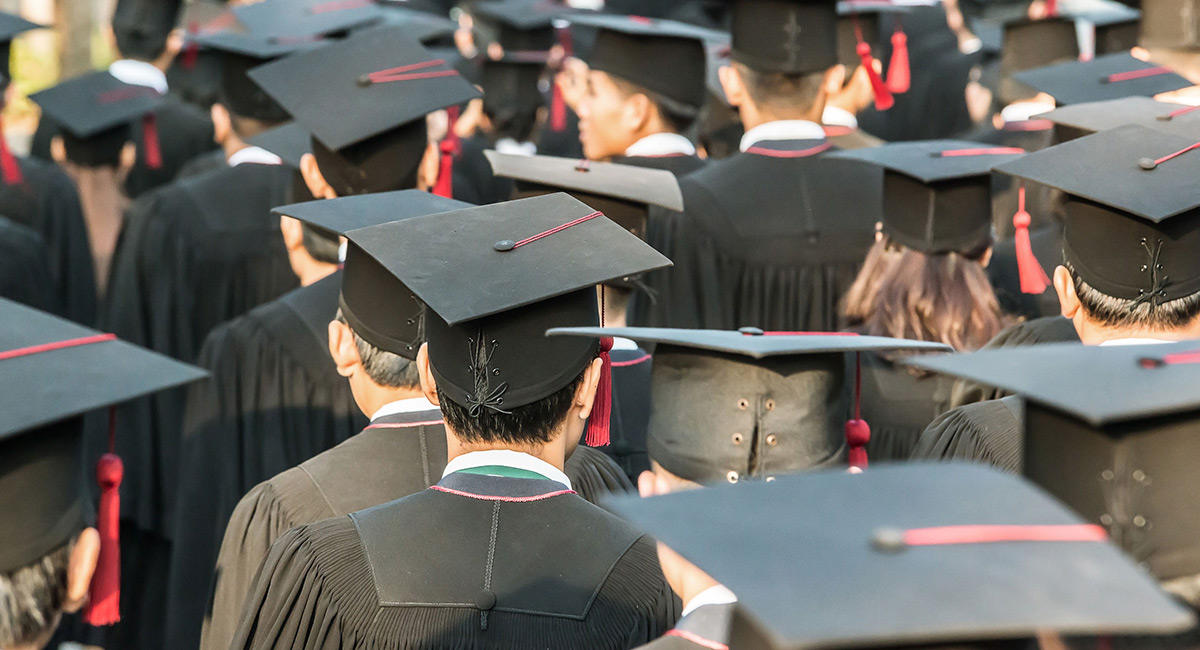Written as the tumultuous and consequential 2020 electoral campaign was winding to a close, I note that almost no discussion of the role of our universities in American life had occurred during the campaign. Trump partisans could have spoken about the lack of ideological diversity in American universities and argued that federal policies largely enacted by Democratic congresses and administrations had caused the tuition explosion that put so many into massive student loan debt.
Biden supporters could have spoken about how higher education holds the key to economic progress, and that offering free college would work to reduce income inequality, especially between races. They could have called for a massive expansion of the Pell Grant program and other ways to expand college access.
Yet very little was said during the campaign about any of these things (or such other issues of policy disagreement as foreign policy). Contrast that to 2016, when, for example, Hillary Clinton would speak about higher education access in many stump speeches. The conventional explanation for the neglect of higher education in 2020 was that Covid-19 crowded out discussion of most issues. It became Joe Biden’s major talking point, to the point that he spoke about virtually nothing else in the latter days of the campaign, if national news accounts accurately reflect his actual campaign utterances. Perhaps something was said by one of the candidates during the two presidential debates, but if so, I do not recall it and it certainly was not consequential.
But part of the reason for the non-emphasis on higher education may be its decline in importance in American life. The proportion of the American population attending college this fall is probably almost 20% smaller than it was a decade ago, partly because of the coronavirus but at least equally because of other factors, including an increasing skepticism that a university degree is a good value proposition.
Particularly relevant are the increasing negative attitudes of Americans towards colleges and universities. Polling data show declining public support. Campus protests and the ascendant Cancel Culture has infuriated conservative Americans and annoyed many moderates, while polling data show somewhat smaller but real erosion in support among liberals. Americans of all stripes have found massive fee increases until recently hard to accept, particularly as they read of conspicuous consumption in some aspects of collegiate life, such high salaries of football coaches and ever more luxurious recreational and housing facilities.
Both Trump and Biden themselves are university graduates (Trump: University of Pennsylvania, Biden: University of Delaware and Syracuse for law school) who sent their adult children to good, expensive private universities (Trump’s: Penn and Georgetown, Biden’s: Georgetown, Yale, Penn, Syracuse and Tulane). Some 20 of the 21 presidents in office since 1900 were college graduates, the sole exception being Harry Truman. In the last one-third of a century, not only did every major candidate for the presidency have a college degree (at a time when a majority of adult Americans still did not), but increasingly they attended elite Ivy League schools like Yale, Columbia, Penn, even England’s Oxford. If elected, Biden would be the first non-Ivy League educated president of the 21st century. America has been becoming a bit like England, where an Oxbridge degree is commonplace amongst Prime Ministers, and personal acquaintance with the academic aristocracy is a near-must.
Wannabe presidents are degree laden as well. I researched the four leaders of each political party in Congress, as well as the governors of the 10 most populous states. All 18 were college graduates, most having a graduate or law degree; two-thirds attended at least one private school (Pennsylvania Governor Tom Wolf had degrees from three, including a Ph.D. from MIT).
America’s political leaders are highly educated and their public consciousness was largely formulated in their collegiate years, but they face an electorate that, while more educated than ever, is also having more reservations about how higher education works in America. Still, modern American intellectual thought and its increasingly progressive (some would say radical) strains has arisen largely out of the campus environment, so sympathetic politicians will probably see that the universities receive all the public support they need, and perhaps even more than they deserve.













